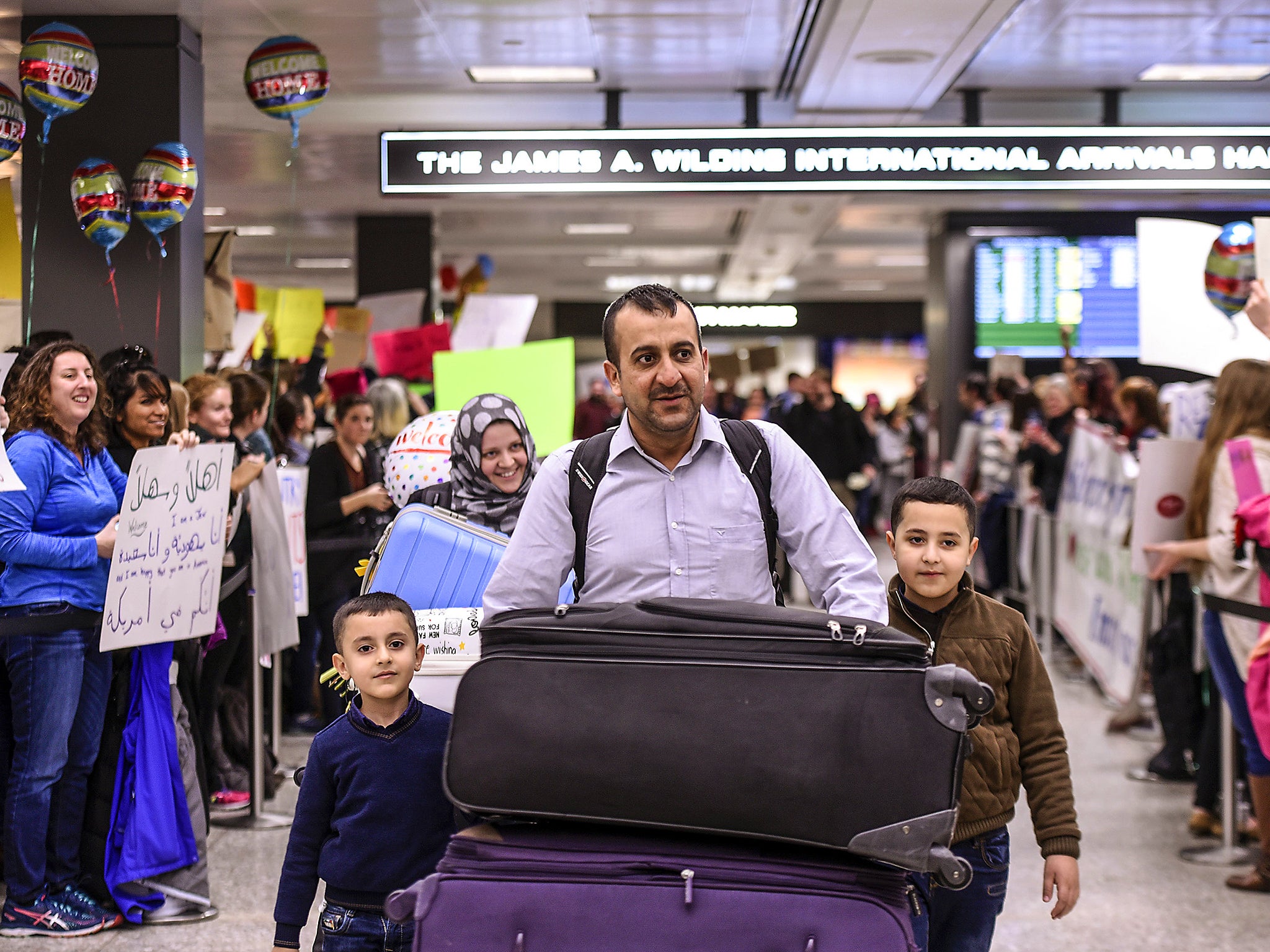As an Iraqi, I know there’s nothing new about Trump’s ‘travel ban’ – it’s been happening in airports for years
My interrogation at McCarran International Airport - Las Vegas, Nevada included being asked if I had any links with al-Qaeda. As an awkward 13-year-old, I hardly had any friends, never mind an extended network of terrorist affiliates


Your support helps us to tell the story
From reproductive rights to climate change to Big Tech, The Independent is on the ground when the story is developing. Whether it's investigating the financials of Elon Musk's pro-Trump PAC or producing our latest documentary, 'The A Word', which shines a light on the American women fighting for reproductive rights, we know how important it is to parse out the facts from the messaging.
At such a critical moment in US history, we need reporters on the ground. Your donation allows us to keep sending journalists to speak to both sides of the story.
The Independent is trusted by Americans across the entire political spectrum. And unlike many other quality news outlets, we choose not to lock Americans out of our reporting and analysis with paywalls. We believe quality journalism should be available to everyone, paid for by those who can afford it.
Your support makes all the difference.As a teenager, thirteen years ago, I travelled to the USA with my parents and twin brother. I thought I had experienced the peak stress of my life by that age – selecting my GCSE subjects. I was excited to take a holiday to unwind from it all. But being Iraqi, the “Land of the Free” was not so happy about our arrival at one of their airports.
We were the four "random" passengers selected for questioning. My interrogation then ensued:
What links do you have to Al-Queda? Who? To be honest, I barely have friends at school.
Are you in possession of a bomb/have you ever made a bomb? No. I still don’t know how to tie my shoelaces.
We see on your passport that you’ve recently been to Jordan – why? To go to my cousin’s wedding. It was quite dull, in truth.
What is your intention in our country? To make my parents buy me clothes and food.
After almost four hours, we were “released”. My father, a proud man, looked sunken and humiliated; it was the only time I’d ever seen him like that.
For the first time in my life, I felt self-conscious of being Arab. Until then I had never been forced to reconcile with my Arab identity – I was raised and educated in London, and it’s not something I directly felt on a daily basis. But our experience in the airport made me ashamed of our heritage. It ruined our American holiday, and any side-glance I felt on the street contributed to my paranoia. Do I look too Middle-Eastern? Do I look like an Islamic extremist? The thoughts caused my self-worth to plummet.
What devastates me about Trump’s swift immigration policies is that they are pitched as a “fight against extremism”. But these policies are extremist. They enact a fictitious hierarchy in which Arab identities are inferior to the "progressive" character of the West, and it does great damage to the self worth of Arabs. After the airport ordeal, I began to internalise the shame of being Middle-Eastern – and this lead to constant anxiety, paranoia, and feelings of worthlessness as an immigrant in the UK.
To everyone now expressing outrage at Trump’s barbaric Muslim ban, I’d like to remind you that it is sadly the logical end point of the “vetting” of people of colour at borders that has been going on for years. While for decades the issue has been systemic, Trump has now upped the xenophobic dial to 11.
Join our commenting forum
Join thought-provoking conversations, follow other Independent readers and see their replies
Comments